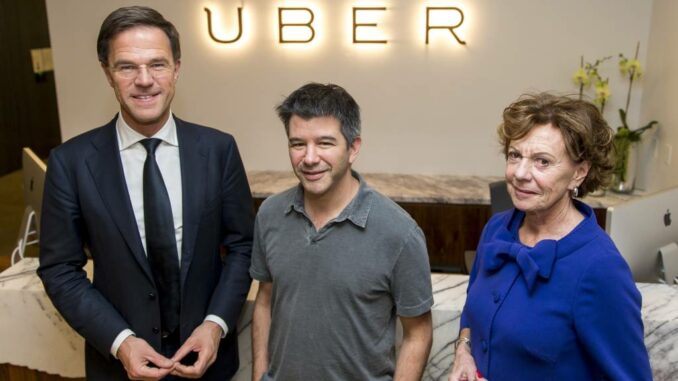
Neelie Kroes secretly promoted Uber while disobeying a European Commission ban.
Neelie Kroes, a former European Commissioner and prominent VVD member, surreptitiously lobbied in 2015 and 2016 on behalf of the American firm Uber. This decision was reached after the International Consortium of Investigative Journalists (ICIJ) looked over 124,000 internal papers from the tech giant.
The so-called Uber Files were the subject of investigations in the Netherlands by Platform Investico, Trouw, and the Financieele Dagblad. The emails, minutes, notes, and chat messages that make up the records were first leaked to the British publication The Guardian before being given to the ICIJ.
Despite the fact that the European Commission had specifically prohibited her from working for the digital behemoth, Kroes lobbied on its behalf.Through the former European Commissioner, the firm sought to influence both the taxi legislation and a criminal probe by the Public Prosecution Service. On behalf of Uber, Kroes got in touch with the prime minister, a number of directors, and other high-ranking individuals.
From 2004 until 2014, Neelie Kroes served as a commissioner for the European Commission. She served as the European Commission’s Commissioner for Competition from 2004 to 2009, and from 2009 to 2014, she was in charge of ICT and telecommunications.
As a representative of the European Commission, she had already been asked to join the advisory board of Uber. In November 2014, almost immediately after resigning as a European Commissioner, she began formally advancing the company’s interests. At the end of 2015, she asked the European Commission for permission to join the group that gives advice to Uber’s CEO.
However, the ethics committee turned down that proposal since it was against the old European Commissioners’ rule of conduct. Juncker, the chair of the commission, likewise declined Kroes’ request because of her prior obligations. He told her to follow a cooling-off period, which was set up to keep European Commissioners from having conflicts of interest when they later lobby for businesses.
After the refusal, Kroes persisted in informal lobbying and took directives from Uber’s top executives. She spoke with the then-VVD ministers Kamp and Schultz, the state secretary for infrastructure and the environment Mansveld, and the finance minister Dijsselbloem, for instance, in 2015. When the grace period was over in 2016, she joined the advisory board right away and paid a two-ton annual fee.
It is an “obvious case of conflict of interest,” according to Professor Christoph Demmke, an integrity expert and counsellor to the European Parliament, who spoke to Investico. Due to her transgression of European norms of conduct, Kroes could lose her pension.
She only officially joined Uber in 2016, but that doesn’t matter, says Leo Huberts, an emeritus professor of public administration. He claims that a more comprehensive view than merely formal employment is required.
According to the Ministry of Economic Affairs, where the service is housed, such an envoy should not approach ministers or officials on behalf of a firm. Uber, incidentally, was no longer a start-up in 2014 because it had a valuation of 51 billion dollars.

Be the first to comment